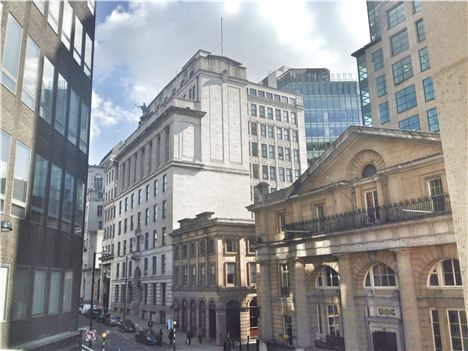CORE CITIES, the group of large British cities outside London, has expanded its membership beyond England.
Glasgow has more in common with cities like Liverpool and Manchester than we do with many parts of Scotland.
Sir Richard Leese, Leader of Manchester City Council and Chair of Core Cities Cabinet, said:
“On behalf of the other Core Cities I am delighted to welcome Glasgow, a great Scottish and British city into our network. This is an historic moment for our group, expanding for the first time in more than a decade and for the first time ever outside England, a move which was agreed by all eight Core Cities’ political leaders.
“The question of independence is one for the people of Scotland. But the question of devolution to drive urban economies and jobs is one for cities, whether they are located in England or Scotland. Together we will be more able to challenge the centralising tendencies of all our governments. This does mean radical constitutional change, but it cannot just mean a contest between parliaments.
“Our cities' economies will benefit from greater connectivity rather than separation. For example by working together to deliver HS2 as a first step toward a full national High Speed Rail network we will make life better for people and businesses in every UK city. And by collaborating to create better economic and employment policies we will deliver more jobs and growth for the nation. Together we will create an exciting vision for a wealthier, fairer and more balanced Britain.”
Manchester
The Core Cities led the first wave of City Deals, bespoke packages of power and resources devolved to cities initially in England. Glasgow is the first non-English city to announce a City Deal with the UK Government, for a programme of infrastructure investment valued at £1.13 billion. Glasgow and seven other neighbouring local authorities will benefit from the City Deal.
Councillor Gordon Matheson, Leader of Glasgow City Council said:
"This is a highly significant moment as Glasgow takes her rightful place alongside our sister cities in England at the forefront of efforts to expand and re-balance the British economy. Glasgow has more in common with cities like Liverpool and Manchester than we do with many parts of Scotland.
“Arguing over which powers should be held by Holyrood or Westminster is a sterile distraction. Power and resources should be transferred from both parliaments to city-regions if we're serious about creating jobs. Both nation-building centralisers and austerity-obsessives undermine economic growth.
“The future is urban, and metropolitan cities the world-over are the powerhouses of the economy. For the first time in human history the majority of the world's population live in cities, a figure set to rise to 75% by 2050."
Liverpool
Glasgow shares the attributes and criteria associated with other Core Cities: a critical economic hub at the centre of a bigger city region; diverse sectoral growth and skills within its labour market; containing a set of assets, infrastructure and institutions that underpin growth; a large population; and at the heart of a city region which has a coherent governance structure and is a prime driver of growth and employment at scale across a much larger geography.
Glasgow’s urban area delivers 33.1% of the Scottish economy and is home to 1,790,500 people, which when combined with the 27% of the English economy delivered by Core Cities urban areas and their residents, equates to 24.6% of the UK economy (27.0% of the English and Scottish economy combined) and 27.5 % of the UK population (29.7% of the combined English and Scottish population).
Confidential comment
Interesting move this one thinks Confidential. Matheson is right to say Glasgow has far more in common with Manchester and Liverpool than with other parts of Scotland. In its history and its present make-up, in the challenges it faces, we match each other almost step by step.
Not that the Scottish Nationalists will appreciate Glasgow's initiative. They will see a political motive behind a city Labour administration - part of the 'Better Together' campaign - timing this admission just a few weeks before the Scottish referendum.
The Nationalists will no doubt publicly blub about it. After all such clear evidence of the entwined intricacies of British life being underlined by the most important urban area in their country will not suit their campaign. But so what? For the cities involved this move makes absolute sense as does avoiding the Scottish Nationalists Balkanisation of the UK.













